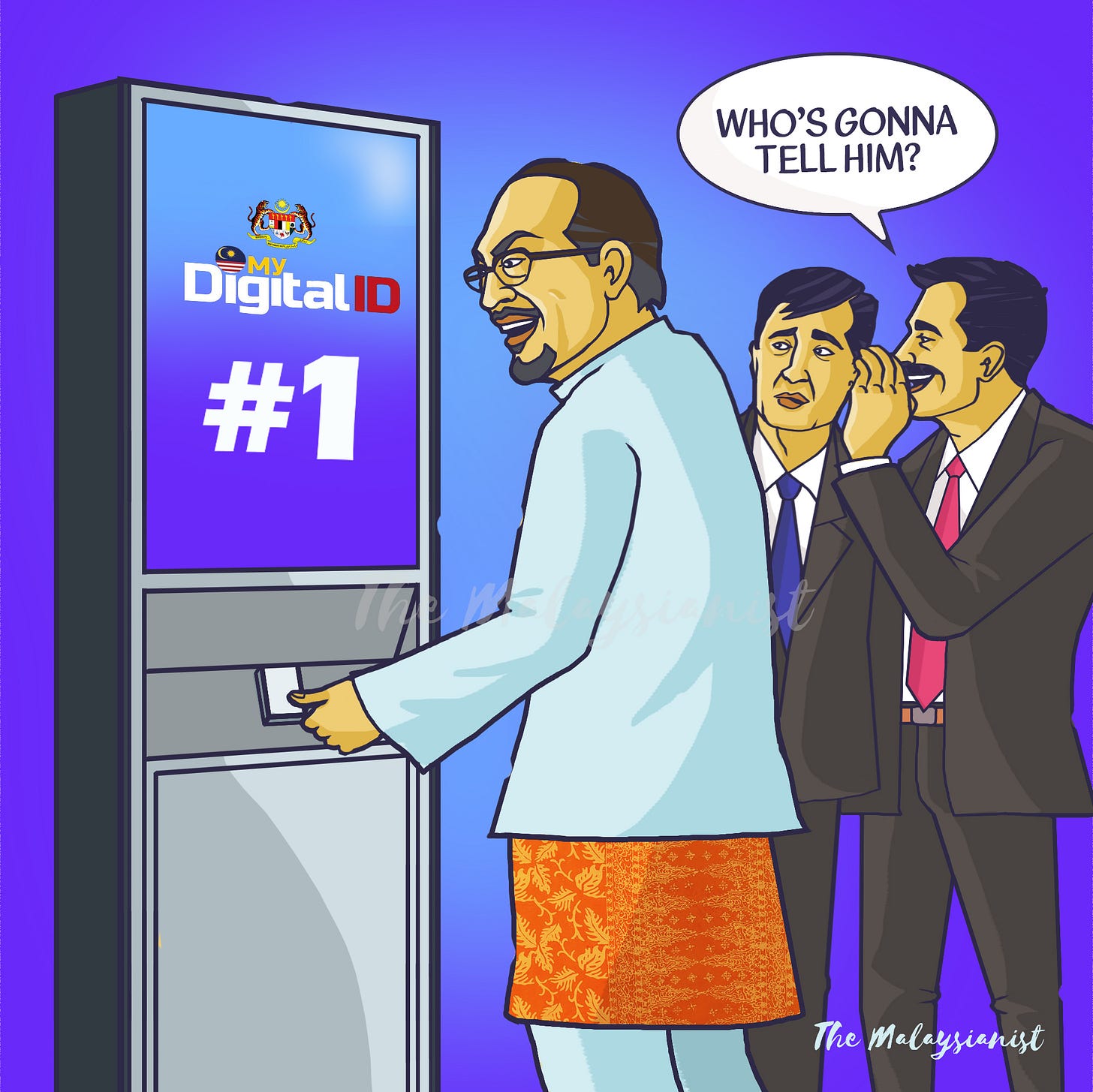Malaysia’s RM460 million digital dud
The country wants to emulate SingPass and e-Estonia but can’t seem to get it right.
You’re reading a paid version of The Malaysianist, a newsletter on money and power by writer and journalist Emmanuel Samarathisa.
I run monthly and annual subscriptions. There’s also the atas or founding member tier where you get all the perks of an annual subscription and more, such as an annual or founder’s report and insight into how this little corner of the internet fared throughout the year.
Group subscriptions are also on the table, too, if you’re mulling over bulk purchases for your organisation or for family members.
“Malaysia spent so much money on the oldest method to build its digital ID framework and we are taking so long to implement it.” — a Kuala Lumpur-based tech expert
On December 1, 2023, Prime Minister Anwar Ibrahim looked impressed as he placed his thumb on the MyDigital ID terminal. He was told he was the first person to sign up for Malaysia’s digital identity.
National newswire Bernama reported that as Anwar — the prime minister-cum-finance minister — signed up, the digital ID is “set to boost the confidence of the people in the safety and transparency of the system”.
Fast forward to Thursday, Anwar was flummoxed that two of the digital projects he wanted to take off badly — the digital ID and second 5G network — were riddled with delays.
He even apologised for uttering an English word that was “out of character” during a briefing on the project. Surely it’s not the four-letter word “chill”.
I questioned his motives over the 5G rollout on Saturday:
But the digital ID, which is part of today’s newsletter, is turning out to be not only a tad hilarious, but exemplary of terrible policymaking in Anwar’s government.
Clearly whoever it was that sold the PM the No.1 pitch lied. Then science, technology and innovation minister Khairy Jamaluddin hyped it up in 2020.
Jokes aside – it isn’t April Fool’s Day – the government has spent close to RM500 million on the project, but the digital ID is turning out a dud.
More so for an initiative that tech experts I spoke to for this newsletter believe could have been completed within months and at a cheaper cost.



